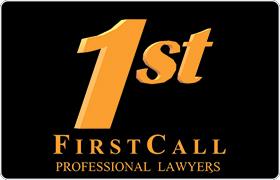Pasadena White Collar Crime Lawyer, California
Sponsored Law Firm
-
 x
x

Click For More Info:
-
First Call Legal Services Corporation
530 Hacienda Dr Unit 101B Vista, CA 92081» view mapCriminal Defense Effective. Versatile. Decisive.
Our vision is to build strong, trust-based client relationships from our first handshake. Every challenge is an opportunity. You need the RIGHT PEOPLE for the job you want done.
760-690-3999
Gina Tennen
✓ VERIFIEDCriminal, Military, Juvenile Law, White Collar Crime, RICO Act
LibertyBell Law Group consists of a group of elite criminal defense attorneys who have become some of the most sought after lawyers in the nation. Our... (more)
Steve Meister
Family Law, Government Agencies, White Collar Crime, Election & Political
Status: In Good Standing
FREE CONSULTATION
CONTACTFREE CONSULTATION
CONTACTEdgar J. Gutierrez
White Collar Crime, Household Mold, Products Liability, Personal Injury
Status: In Good Standing
Bassam Marjiya
Trusts, White Collar Crime, Corporate, Personal Injury
Status: In Good Standing Licensed: 8 Years
Steven Mark Friedman
Civil Rights, Workers' Compensation, Products Liability, Class Action, White Collar Crime
Status: In Good Standing Licensed: 36 Years
Richard Sean Moskowitz
Criminal, White Collar Crime, Health Care Other
Status: In Good Standing Licensed: 36 Years
 First Call Legal Services Vista, CA
First Call Legal Services Vista, CA Practice AreasExpertise
Practice AreasExpertise

